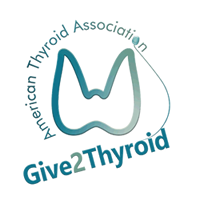BACKGROUND
Normal thyroid function in the mother is important during pregnancy. It is clear that overt hypothyroidism in the mother (high TSH, low FT4) is associated with poor pregnancy outcomes, including preterm delivery (delivery before the usual pregnancy term of 40 weeks). It is less clear that subclinical hypothyroidism (high TSH only) is associated with poor outcomes, although there are studies that suggest that preterm delivery is increased. At present, expert endocrinologists have not yet reached agreement regarding the treatment of women with subclinical hypothyroidism during pregnancy. Areas of disagreement include the level of TSH in which to start thyroid hormone treatment during pregnancy and whether antithyroid peroxidase (TPO) antibody positivity should impact this decision. Since TPO antibodies are a marker of autoimmune thyroid disease, if they are present, it is more likely that the increased TSH represents something abnormal. To try to study the effect of an increased TSH alone on pregnancy outcomes, this study sought to determine whether thyroid hormone replacement therapy would be beneficial for reducing preterm delivery in pregnant women with subclinical hypothyroidism and negative TPO antibodies.
THE FULL ARTICLE TITLE:
Nazarpour S, et al. Effects of levothyroxine on pregnant women with subclinical hypothyroidism, negative for thyroid peroxidase antibodies. J. Clin Endocrinol. Metab. 2018. 103 (3): 926-935.
SUMMARY OF THE STUDY
These investigators performed a trial of thyroid hormone replacement therapy in pregnant women with subclinical hypothyroidism and negative TPO antibodies. They recruited 2 groups of TPO antibody negative pregnant women: those with subclinical hypothyroidism (366 women) and thyroid with normal thyroid function (1092 women). Subclinical hypothyroidism was defined as a TSH >2.5-10 mIU/L with a normal free thyroxine index. They randomized the women with subclinical hypothyroidism to receiving thyroid hormone or not and compared them to control women with normal thyroid function. The main outcome measurement was rate of preterm delivery.




